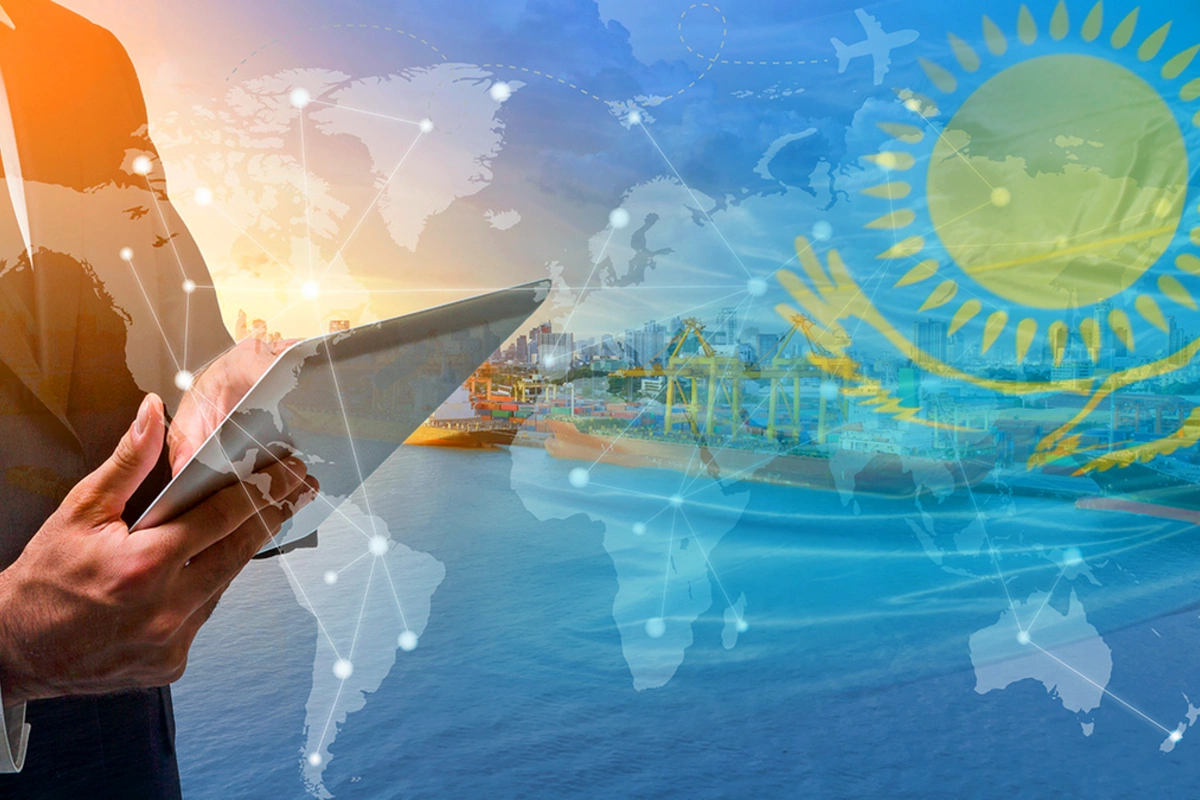
Photo credit: primeminister.kz
Kazakhstan plans to shift its focus beyond oil this year, concentrating on critical minerals and processed goods. This move comes as Western nations aim to diversify their supply chains and reduce reliance on China.
Kazakhstan’s export revenues exceeded $81 billion, crude oil making up more than half of this value - $42.9 billion, or 52.5 per cent. Other goods included uranium, copper and copper cathodes, copper ores and concentrates, as well as ferroalloys, natural gas, wheat, and petroleum products, The Caspian Post reports citing Euractiv.
Data reported by the Bureau of National Statistics (KazStat) places Italy as Kazakhstan’s leading export partner with 22.9 per cent of the total export share, followed by China with 18.3 per cent, and Russia with 11.7 per cent.
The Netherlands and France complete the top five, with 6.5 per cent and 4.5 per cent, respectively.
Import partners
Meanwhile, Russia leads as the main import partner with 30.5 per cent of the import share, followed by China with 25.3 per cent, and Germany with only 4.7 per cent.
The United States and South Korea follow in fourth and fifth place, while France comes sixth with a 3.1 per cent share.
The total import revenue exceeded $59 billion, with the largest import categories being passenger cars with 3.8 per cent of the share, followed by aircraft with 3 per cent, pharmaceuticals (2.8 per cent), telecommunications equipment (2.7 per cent), and vehicle bodies (2.3 per cent).
These trends have persisted even in the first few months of 2025. For the period between January and February, KazStat reported export revenue of $10 billion, with crude oil accounting for 53.4 per cent of the export share, while imports stood at $8 billion, with passenger cars representing 3.6 per cent of the total import share.
Trade with the EU
On a broader look, the European Union is Kazakhstan’s biggest overall trading partner, with data for 2023 placing it as the destination for 37 per cent of total Kazakh exports and representing 27.9 per cent of its total trade that year.
The EU is also the biggest foreign investor in the country.
Earlier in the year, Deputy Foreign Minister Roman Vassilenko said the trade turnover between Kazakhstan and the EU bloc had reached $44.2 billion for the period between January and November 2024, marking a 17.7 per cent growth compared to the same period in 2023. Exports to the EU totalled $34.6 billion, while imports were at $9.6 billion.
Describing the past year as productive, Vassilenko stated that Kazakhstan would continue to develop relations with the bloc as a whole, as well as with member states. Last year, the commitment to expand ties was evident through numerous official exchanges between Kazakh and European leaders.
This year has seen the EU initiating “a new chapter” in its strategic partnership with Kazakhstan and Central Asia, during a summit held in Samarkand, Uzbekistan. The bloc announced various important investments at that event, as a clear sign of consolidating its position in the region.
In Kazakhstan alone, European investments have amounted to $180 billion since 2005. More than 3,000 companies with European capital operate in the country. Trade and investment relations are governed by the Enhanced Partnership and Cooperation Agreement (EPCA), in force since March 2020.
All eyes on Kazakhstan
As Kazakhstan aims to strengthen its economy in a global environment defined by heightened competition, the EU has a unique chance to become a serious player in the country. To do that, it must move beyond its slow, soft-power approach and make an impact through tangible progress in trade, investment, and energy.
Along with other Central Asian countries, Kazakhstan is showing openness to greater cooperation with Europe, something the EU aims to capitalise on. The Samarkand summit marked an important attempt by the EU to boost its influence in a region increasingly shaped by great power rivalry.
Europe can maintain its upper hand as the main overall trading partner, as it enjoys a positive image among the Kazakhstani people, acting as a “norm-setter” on several issues of direct interest. It can also provide expertise and technical assistance in areas where Kazakhstan urgently needs it.
The situation is more than favourable. Kazakhstan’s trade volume with the United States occupies just three per cent of its total foreign trade. President Kassym-Jomart Tokayev has reiterated the diversification of the economy as a priority for 2025, signalling an openness to collaborate with countries beyond China and Russia.
To attract more foreign investment, Kazakhstan is now offering infrastructure assets to European investors as part of its plan to strengthen its role as a Eurasian transit hub. The country is increasing engagement even in the Balkans, a region poised to soon integrate into the common European alliance.
Share on social media